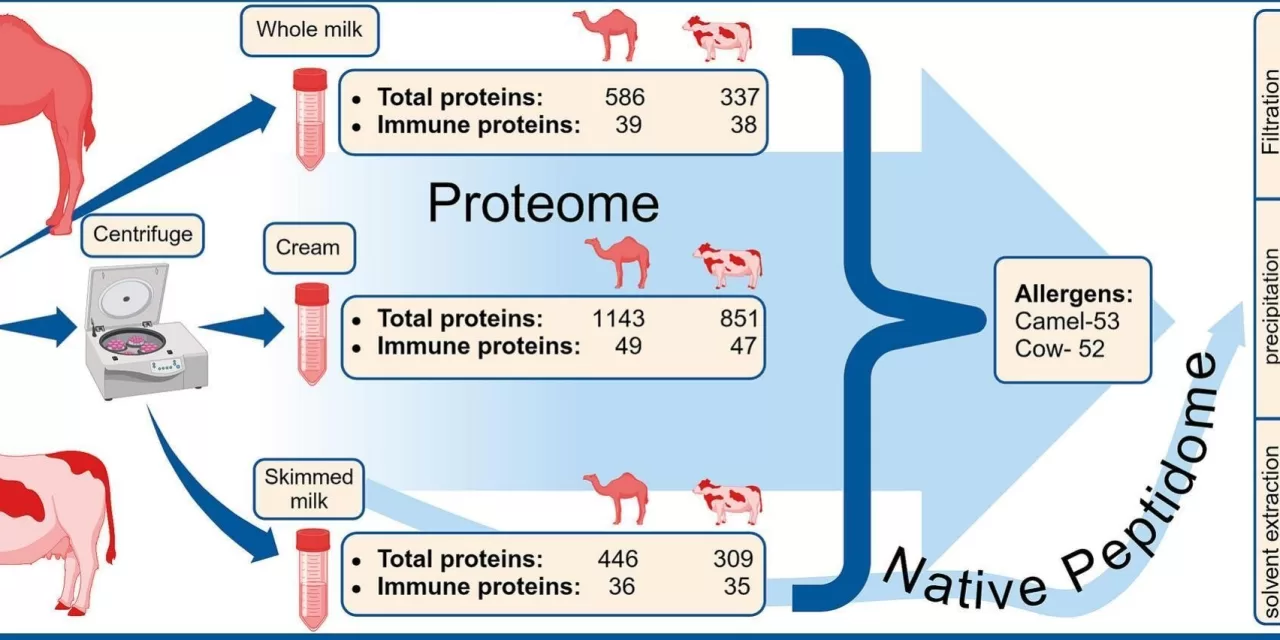New research from Edith Cowan University (ECU) has found that camel milk contains more naturally occurring bioactive peptides compared to cow’s milk. These bioactive peptides have the potential to be hypoallergenic and anti-hypertensive.
-
Camel milk may be suitable for people with β-lactoglobulin allergy
The study found that camel milk does not contain the major milk allergen β-lactoglobulin (β-Lg). This is good news for people with β-Lg allergy, as camel milk could be a viable alternative to cow’s milk.
-
Camel milk may have health benefits
The bioactive peptides found in camel milk have the potential to selectively inhibit certain pathogens, create a healthy gut environment, and decrease the risk of developing cardiovascular disease. However, more research is needed to confirm these benefits.
-
Camel milk has a different nutritional profile than cow’s milk
Camel milk has a lower lactose content than cow’s milk, which may be beneficial for people who are lactose intolerant. It also has a similar protein content and a slightly lower fat content than cow’s milk.
-
Camel milk production is on the rise
Camel milk production is still low compared to cow’s milk production, but it is gaining popularity due to its potential health benefits and suitability for people with allergies. Australia’s climate and existing camel population make it a good place to increase camel milk production.
Overall, camel milk appears to be a promising alternative to cow’s milk for people with allergies and those seeking health benefits. More research is needed to confirm the potential health benefits of camel milk, but the current findings are encouraging.
Note: The potency of these bioactive peptides still needs further testing.












